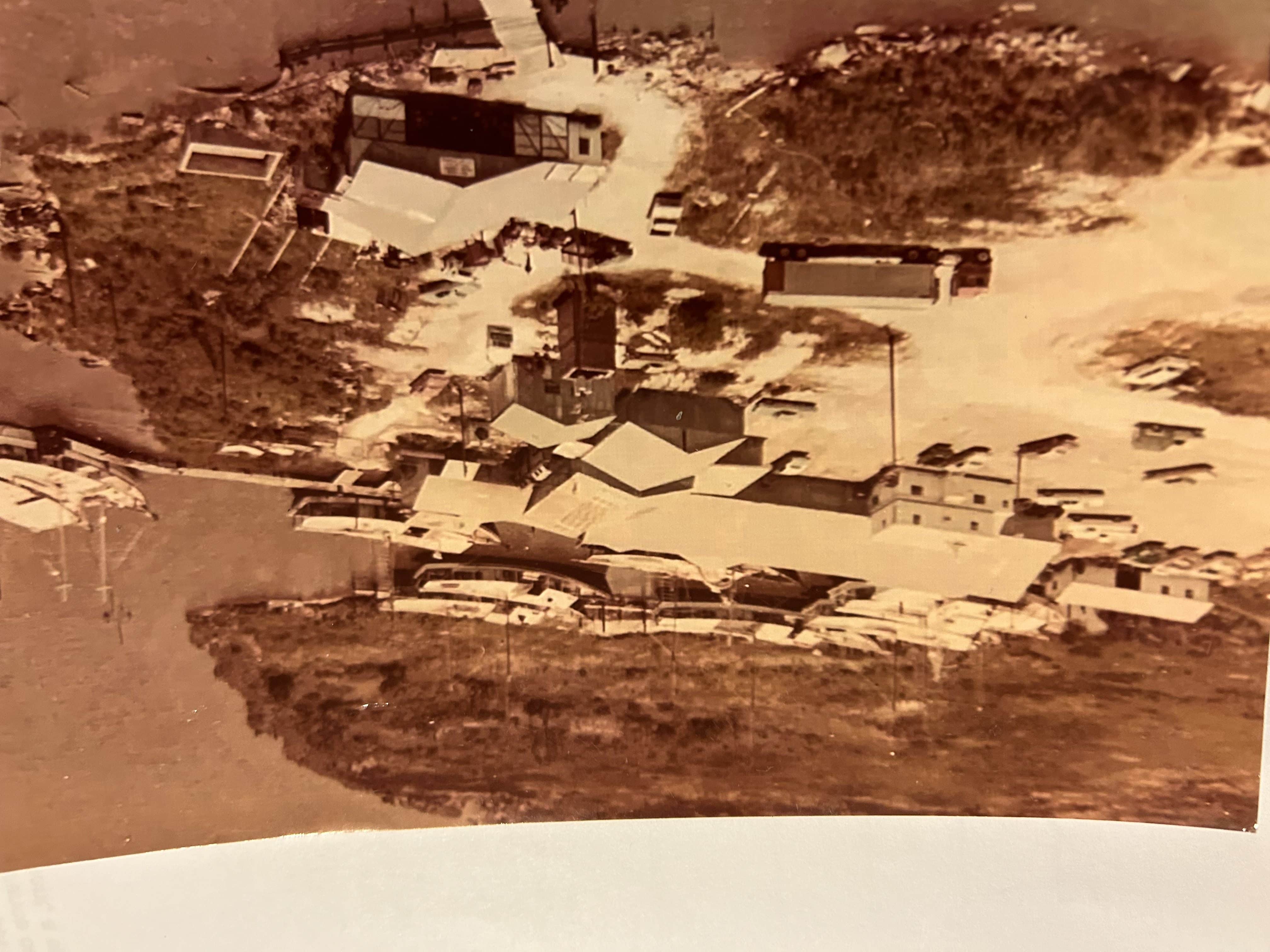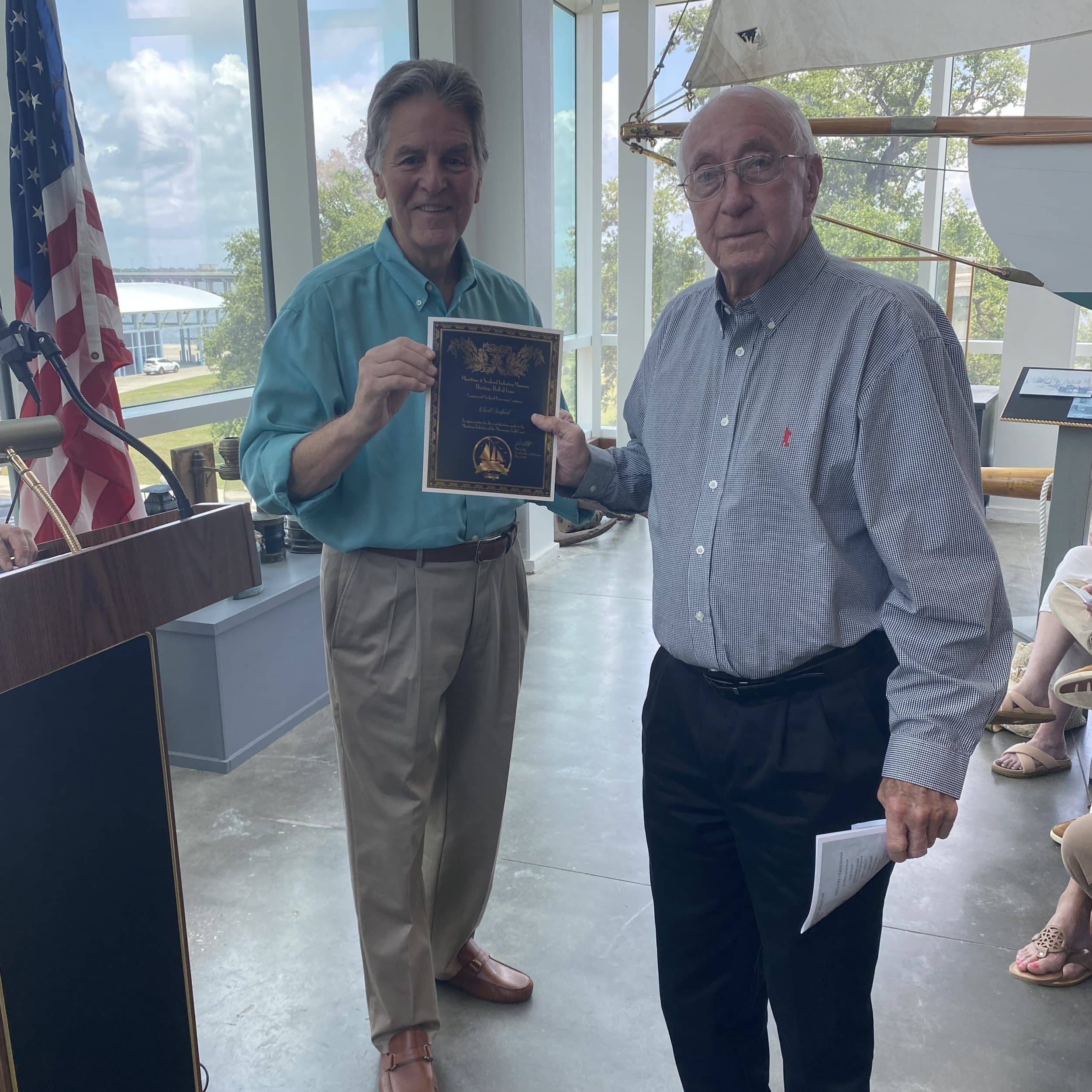The Horn and Clark families in coastal Mississippi and Alabama have long been synonymous with the seafood industry. Back on May 4, Ralph Horn, the late patriarch of that family, plus Clark Seafood as a business, were both inducted into the Maritime and Seafood Industry Museum Heritage Hall of Fame at the museum’s popular Biloxi facility.
“The Heritage Hall of Fame was established in 2014,” said Robin Krohn David, the museum’s executive director. “Its purpose is to recognize the contributions of individuals and businesses who have shown their dedication of honoring the tradition of the maritime and seafood industries on the Mississippi Coast.”

That description certainly describes the accomplishments of the Horn and Clark families. Ralph Horn was born in Bayou la Batre, Alabama in 1921. In 1939, he started working for his brother-in-law, Oliver Clark, the owner of Clark Seafood, as a truck driver and laborer. After the business moved to Pascagoula in 1949, Ralph moved his family here, and eventually became owner of the company, which he owned and operated until his death in 2001.
Along the way, “Mr. Ralph”, as he was often known when I was growing up in Pascagoula, brought on his sons and other relatives to help run the business. One of those sons, Doug, has grace these pages before as a charter member of the Pascagoula Athletic Hall of Fame, but his history with the seafood industry is just as deep as that of his in sports.

Doug was a three sport star athlete at Pascagoula High School, then played baseball at Ole Miss and Mississippi College. He was head baseball coach at PHS from 1966-68, winning state championships the last two years.
“After that second championship,” said Doug, “my father came to me, and said, ‘OK, you’ve played around long enough, you’re coming to work for me now’.”
That started a 36-year career for Doug at Clark Seafood. He eventually became part owner and plant manager before retiring in 2005.
“I loved coaching, but going into the family business was the right thing to do,” said Doug. “I learned the business from the ground up, and it was quite the journey watching Clark Seafood continue to grow.
“Now, the thing about my dad that sticks out to me is that he was willing to change as needed. He, himself, started at the bottom and worked his way up. He came up through the ranks, so he knew what everybody was doing and what the business needed to succeed. So over the years, he would adjust strategies of the operation accordingly.”
Doug also remembers the colorful life of running a seafood company. “We had some characters working for us. One guy jumped off the boat one day and took off swimming—said he had to go see his girlfriend. Another deckhand got a little liquored up and climbed up to the top of the mast howling—we had to get him down and get him dried out. Then, I’ll always remember Carl Saksa, the best red snapper boat captain in the Caribbean, maybe the world. He liked to fish by the moon, late at night. He’d radio in to me some nights and say, ‘call my old lady and tell her to let the dog out and go shopping—we’re pulling in a big load the next couple of days.’”
Over the years, Clark Seafood was known as one of the largest wholesale seafood companies in the United States, processing anywhere from 500-150,000 pounds of fish per day. They owned at one time 25 red snapper boats , ranging in size from 65-85 feet. In addition to the snapper boats, the company owned and operated butterfish, redfish and gill net boats.
These boats fished in the Gulf of Mexico all the way to the Caribbean Sea. For several decades, Clark Seafood was the largest producer of red snapper in the United States. They have sold seafood all over the country, from east coast to west coast, including doing extensive business with the famous Fulton Fish Market in New York City.
Through it all, Ralph Horn was the steady hand at the helm of Clark Seafood and an extraordinary businessman. He was also known for being very family oriented and always having an open door for all his captains, crew members and employees.
Locally, Mr. Ralph was an avid supporter of youth baseball and city league softball. He was a contributor to the Home of Grace, the American Heart Association and other charities, and was a 32nd degree Mason. Behind the scenes, he anonymously funded numerous high school graduates’ college tuitions. He was a faithful member of First Methodist Church in Pascagoula and also Grand Bay United Methodist Church.
“My dad enjoyed developing Clark Seafood into the powerful company it became, but he always put family first,” said Doug. “He was quite a guy.”
Clark Seafood is still operating today, now out of Grand Bay, Alabama, with Ralph’s youngest son (and Doug’s brother) Philip now running the show. There’s no question this has been a family business supreme for many years. In addition to the Horns, there are many other local connections to the business, like my friends Nathan and Wynn Clark.
So, over 80 years ago, Oliver Clark started a little seafood business that Ralph Horn grew into a behemoth of the industry, which saw Doug Horn and other family members carry on with a strong tradition. Now, in 2024, Clark Seafood and Ralph Horn are, most deservingly, in the Maritime and Seafood Industry Heritage Hall of Fame. Hearty congratulations to these local seafood icons—may the red snapper keep coming right on in, as Mr. Ralph looks down from above.
*Richard Lucas may be contacted at [email protected].




